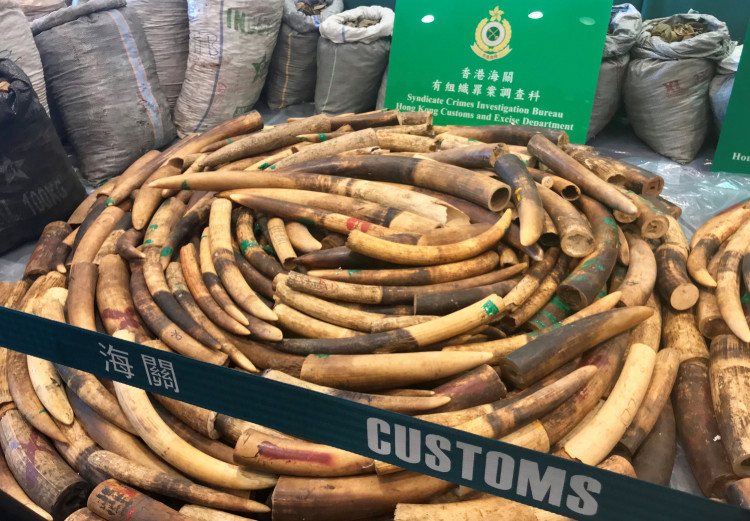Chinese authorities along with Hong Kong customs officials announced this week that they have successfully seized a shipment of illegal animal products. The bust was reportedly the biggest in Hong Kong history. Authorities sieved more than 8,300 kilos of pangolin scales and 2,100 kilos of ivory tusks. Both products come from endangered species and are illegal to trade and transport.
The endangered species parts were found inside a 40-foot container that originally came from Nigeria. Shipping documents indicated that the container was supposed to contain frozen beef. Officers managed to trace the shipment and arrested two employees of a shipping company based in Hong Kong. The suspects have since been released on bail, according to reports.
The illegal trade of wildlife products is big business in Hong Kong. The country has one of the busiest ports in the world and a lot of illegal products go through it each and every day. Wildlife products routinely arrive on the busy ports given its status as the gateway into mainland China. Authorities constantly monitor the shipments, but sometimes some products do slip under the radar.
There is still a growing demand for Ivory in a lot of places in China and Hong Kong. China banned the trading of ivory in 2018. However, It is currently legal to buy specific types of ivory in Hong Kong. The city does have plans to outright ban the buying and selling of these products by 2021. There are around 400 licensed ivory sellers in the city. Authorities closely monitor the products these stores sell, only allowing certain types of ivory from specific species and sources.
Ivory acquired before the passing of an international treaty in 1989 are still legal to trade. Those procured after those dates are strictly prohibited and those that are caught face huge fines and possible jail time. Unfortunately, some sellers still mix in illegal tusks and ivory with their legal inventory. These illegal items come from newly poached animals from exporters abroad.
Scales and other parts of Pangolins, or scaly anteaters, are also big business in Asia. Some people believe that the scales and blood from these animals contain healing properties, which is why they are widely sold as medicine in some parts of Asia. Pangolin meat is also used in various Asian and African delicacies and is highly sought after. Due to this fact, pangolins have become one of the most trafficked animals in the world. Pangolin numbers have drastically decreased in the past few years due to large scale hunting and trading. It is estimated that at least 100,000 pangolins are exported to China and Vietnam from Africa each year.





